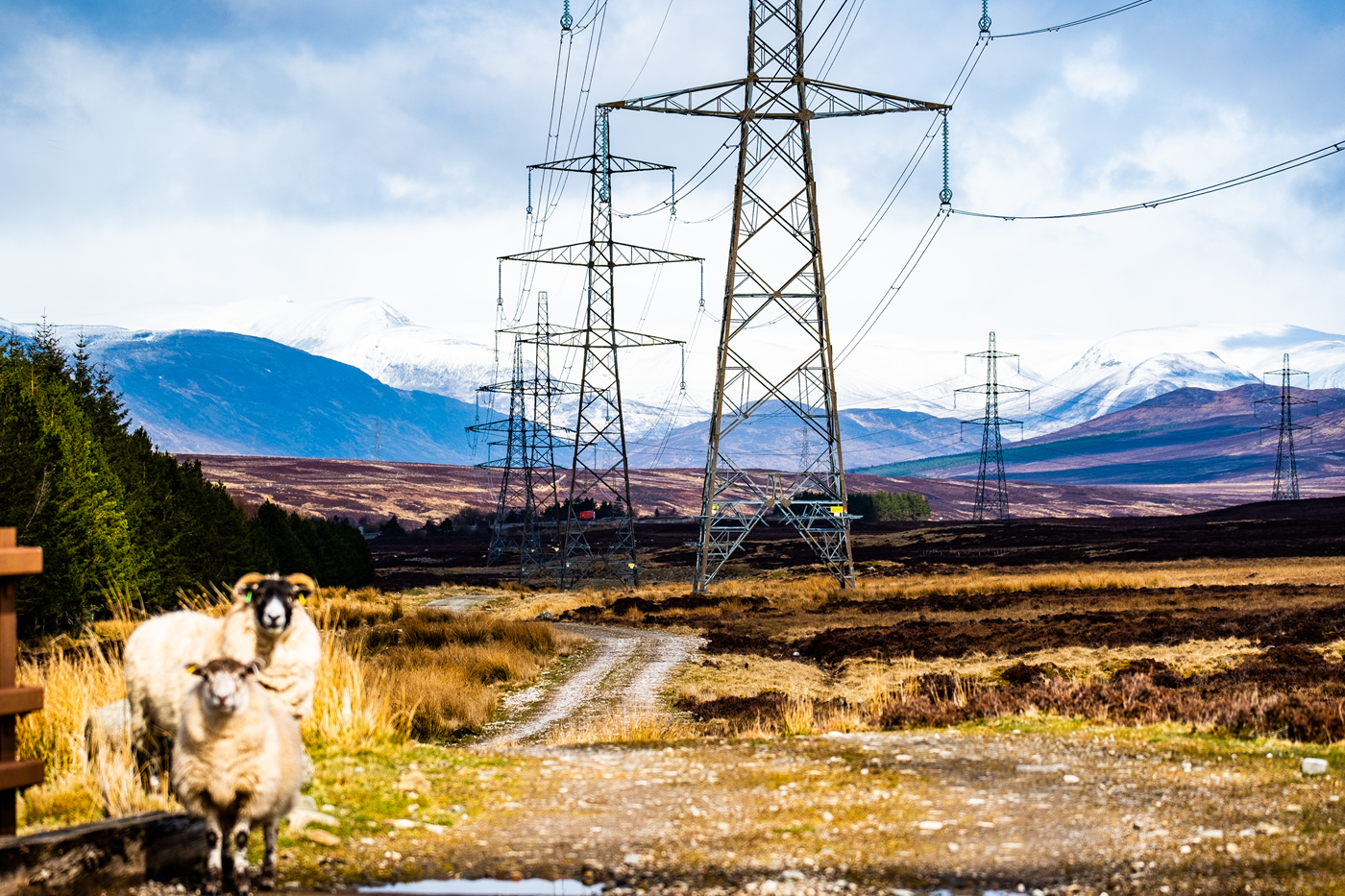Net zero investment could provide a £100m boost to communities in the north of Scotland
A blog by SSEN Transmission's Managing Director, Rob McDonald.
In this week’s Autumn Statement, the Chancellor is expected to give the UK government’s response to the massive clean energy incentive programmes in the US and EU. Most attention will be on how he sets up the UK to compete for the investment needed to deliver net zero.
His words will be listened to carefully, particularly in the north of Scotland, which is home to the some of the world’s best renewable energy resources and where at SSEN Transmission we are planning one of the biggest investment programmes Scotland has ever seen to build the electricity infrastructure needed to transport all that clean homegrown energy.
We recently published a report, ‘Getting to net zero’, that highlights the leading contribution the north of Scotland is set to make in delivering the energy transition, which would see our transmission network providing over 15% of the UK’s total carbon reduction required to deliver 2050 net zero targets.
Based on analysis of what are largely considered to be the most respected routes to net zero pathway scenarios for the UK, the north of Scotland could generate enough clean power to meet nearly a third of the UK’s total electricity demand.
Even more impressively, when you consider it is currently home to around one quarter of Scotland’s population – and just 2% of the UK’s – it is reasonable to conclude that the north of Scotland’s communities will be making a leading – and outsized – contribution to the national endeavor to build a cleaner, more secure and affordable energy system for homes and businesses across Scotland and the whole of Great Britain.
So, how should this role be recognised?
One of the key actions we think the Chancellor could take is to ensure that those communities that make the biggest contribution to helping the country to net zero, see tangible benefits. The exact mechanism is unknown and there has been speculation about direct payments to households nearby new electricity network infrastructure. Another option is to take inspiration from the wider community benefit schemes already in place for renewable developments.
And in the north of Scotland, we think this latter option could provide a potential £100m to boost the wider local economy over and above the creation of thousands of our investments will enable across the economy.
Where did this number come from?
A recent report by independent not-for-profit think tank, Onward, made a series of recommendations about supporting communities on the journey to net zero.
Using Onward’s proposed figures - which are closely aligned with existing community benefit funding that already applies in the island of Ireland’s single energy market – we estimate SSEN’s 2030 projects alone could unlock £100m of community benefit funding. We believe this level of ambition is a good starting point for Government and energy regulator Ofgem’s ongoing consideration of an enduring community benefit funding package for electricity transmission.
It also stands to reason that the costs of this community benefit funding are recovered from all those users of the energy system across GB that will benefit from the clean energy transition.
As a regulated business, what we invest, how that investment is recovered and what return we make on our investments is effectively set by Ofgem. Unlike commercial investors, such as onshore and offshore wind farms, we cannot price the cost of community benefit in our investments unless this is recoverable through the regulatory framework under which we operate.
We therefore support the UK Government position that these costs are recoverable, a position also supported by Onward and the UK Government’s independent Electricity Networks Commissioners, Nick Winser.
Put simply, this is the most equitable way to ensure that the costs and benefits of the infrastructure are fairly distributed; by funding community benefit in this way, with the costs of measures to reward communities hosting the infrastructure being picked up by end users of the energy being transported.
We will continue to advocate positively for an ambitious package that truly delivers transformational change.
We therefore call on the UK Government to ensure this reflects the leading and outsized contribution the north of Scotland and its host communities will make to our national endeavour to build a cleaner, more secure and affordable energy system for homes and businesses across Scotland and Great Britain.
